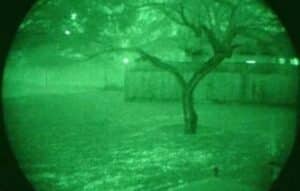Announcements
Dune: Part Two (original title: Dune: Part Two) is an epic science fiction film directed by Denis Villeneuve, released in 2024. It is the long-awaited direct sequel to Dune (2021), adaptation of the acclaimed novel of the same name by Frank Herbert. While the first installment established the world of Arrakis and the political conflicts between the noble houses of the Empire, the second part delves into the action, prophecies and messianic destiny of Paul Atreides.
The film once again features a stellar cast and an ambitious staging that combines dense narrative, political philosophy, religion and epic battles. Villeneuve not only adapts the second half of the first book of the literary saga, but also delves into the human and ethical dilemmas that power entails.
Synopsis
Announcements
Following the events of the first film, Paul Atreides (Timothée Chalamet) and his mother, Lady Jessica (Rebecca Ferguson), survive the House Atreides massacre perpetrated by the Harkonnens and take refuge with the Fremen, the inhabitants of the Arrakis Desert.
As he adjusts to life in the harsh sands, Paul begins to be seen as the ilLisan al Gaib def, a messianic figure prophesied in Fremen beliefs. As he develops his relationship with Chani (Zendaya), a Fremen warrior, Paul faces a profound dilemma: embrace his prophesied destiny and lead a holy war in the universe, or try to avoid bloodshed, knowing that his mere existence could be the spark of a galactic conflict.
Announcements
With the growing threat of Baron Harkonnen (Stellan Skarsgård), and the appearance of the mysterious and cruel Feyd-Rautha (Austin Butler), Paul must make decisions that will affect not only Arrakis, but the future of all humanity.
Cast
- Timothée Chalamet like Paul Atreides: Heir to House Atreides, now transformed into a leader and prophet in the desert.
- Zendaya like Chani: Fremen warrior, Paul's guide in his new life and his love interest.
- Rebecca Ferguson like Lady Jessica: Mother of Paul, a member of the Bene Gesserit brotherhood, who also plays a key role in Arrakis' spiritual politics.
- Javier Bardem like Stilgar: Leader of the Fremen Sietch Tabr tribe, loyal to Paul and his mother.
- Austin Butler like Feyd-Rautha Harkonnen: Baron Harkonnen's nephew, ambitious, violent and calculating, a direct threat to Paul.
- Stellan Skarsgard like Baron Vladimir Harkonnen: Lord of House Harkonnen, who seeks absolute control of Arrakis and his spice.
- Florence Pugh like Princess Irulan: Daughter of the Emperor, caught in the political game and used as a negotiating piece.
- Christopher Walken like Emperor Shaddam IV: Ruler of the known universe, who fears Paul's rise.
- Read Seydoux like Lady Margot Fenring: A Bene Gesserit with a secret mission at the Emperor's court.
Criticisms
The film was almost universally acclaimed by critics. Many consider that Dune: Part Two it is one of the best science fiction films of the last decade, and even superior to its first part.
Critical highlights:
- Master direction by Denis Villeneuve, who combines the epic with the intimate, without losing the narrative rhythm.
- Shocking performances, especially Chalamet and Butler. The former shows Paul's psychological evolution, while Butler offers a terrifying antagonist.
- Deep and philosophical script, which does not underestimate the intelligence of the viewer, dealing with topics such as religious fanaticism, imperialism and mass manipulation.
- Impressive visual and sound design, which reaffirms the director's commitment to cinema as art.
Some minor criticisms:
- The density of the dialogues can be challenging for those unfamiliar with the universe.
- The limited appearance of certain characters (such as Florence Pugh or Christopher Walken) left some wanting more political development.
Public reception
The public responded enthusiastically to the sequel. In the first days of release, Dune: Part Two it surpassed $400 million at the global box office, and its trend continued to rise. In places like Rotten Tomatoes, the film earned more than 95% approval from critics and audiences.
Many fans celebrated that Villeneuve respected the complexity of the source material without diluting it, while also offering action, romance and drama.
Among the most common reactions of the public are:
- Excitement for epic battles and combat choreography.
- Fascination with the development of Paul's hero path.
- Admiration for the cinematography that turns the desert into another character.
Additionally, audiences highlighted Austin Butler's work as Feyd-Rautha, one of the most disturbing and charismatic villains in recent cinema.
Technical and visual aspects
In the technical section, Dune: Part Two it's a cinematic spectacle:
- Cinematography: Greig Fraser re-signs as director of photography, using IMAX cameras and a desert aesthetic that conveys both beauty and brutality. The scenes in palatial interiors contrast with the open desert landscapes.
- Production design: The world of Arrakis and the various imperial palaces are designed with an impressive level of detail and originality, inspired by both ancient architecture and futuristic visions.
- Visual effects and sound: The use of CGI is subtle and serves history, from the colossal sandworms to the spaceships. The sound design is immersive, with a desert roar that feels almost physical.
- Soundtrack: Hans Zimmer once again composes an immersive score, using exotic instruments, choirs and tribal rhythms that reinforce the spiritual and warlike atmosphere. His music is an essential part of the film's emotional experience.
- Costumes: Each culture in the Duna universe has a unique visual identity. From water-recycling Fremen costumes to the Emperor's ornamental outfits, the costumes reinforce the narrative without exaggeration.
Conclusion
Dune: Part Two it is not just a sequel, but a consecration. Denis Villeneuve achieves what many considered impossible: faithfully adapt a complex, dense and philosophical work, without losing the cinematographic spectacle. This second part completes the arc of the first book masterfully and leaves doors open for an eventual adaptation of Dune: The Messiah, the direct continuation in the novels of Frank Herbert.
With memorable performances, visually impeccable direction and a story that combines the political, the spiritual and the human, Dune: Part Two it is positioned as a masterpiece of modern science fiction. It is not an experience for impatient viewers, but for those who immerse themselves in its universe, the reward is immense.







